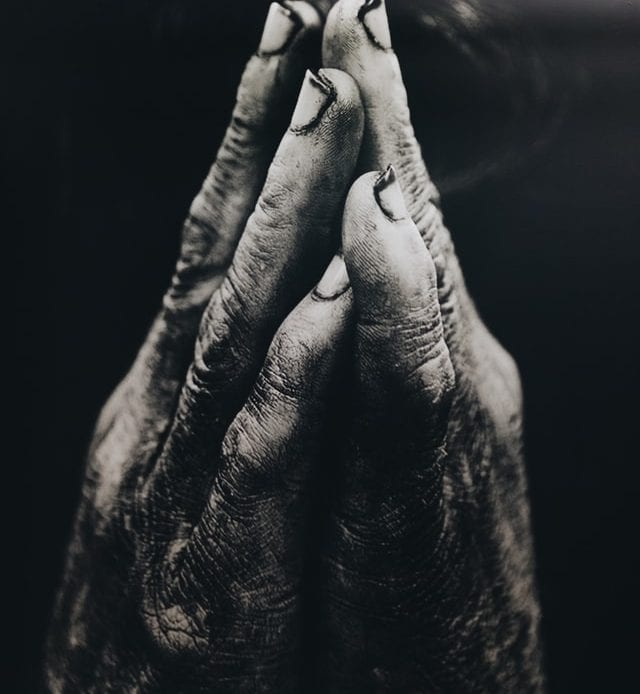
Our environment and surroundings have an undeniable effect on our lives. We are shaped by our families, influenced by our peers and molded by our experiences. From the moment we are born to the very last breath, we accumulate characteristics that make us the mere versions of our circumstances. A child born in an entrepreneurial family has different traits, a kid without parents behaves uniquely, a baby born and raised in a religious family lives life completely distinct from the other.
Religion is one of the biggest influence in our sphere of lives. It transforms our personality, our attitude and aptitude. It is the moral fabric in our lives that conditions us to be respectful, compassionate and honest. Our relationship with our family, friends and society are guided by the forces of religion. Did you ever stop to consider why families are breaking apart, why moral values are disintegrating, why divorce rates are skyrocketing? Is this the dystopian world the young will inherit when it’s their time to take on the reins. Will the kingdom of God be emasculated the forces of modernity?
Research has pointed to religion as a savior in bridging the moral divide. Religious families have happy relationships, disciplined children, better marriages and a healthy lifestyle. Religious people are actively social, acutely aware and emotionally sensitive- the very foundations of righteous living. As we explore, we find that religion is the only guiding star that has the power to redeem and reform our lives. Here are some ways that religion has shone its light and transformed the way we perceive or behave.
Way of Life
Being raised in a religious environment is a blessing in disguise. Religious teachings provide ethical, emotional and elemental education for a disciplined upbringing. It has been found that religion teaches tolerance, respect and understanding. Adherents grow up to be more social, gracious and more peace loving.
Family
There is a lot of tumult growing up. In this connected age, kids are bombarded by the messages of extremism, exploitation and radicalization. Religion not only teaches restraint, but also opens up social connections that are bound by faith and belief. It makes kids responsive, respectful and polite. Many families are unable to teach good values to kids at the young age which leads to their becoming disrespectful and defiant when they grow up. Kids from religious families are more liable to be trustful, supportive and involved in their relationships. They are more disciplined, moderate and forgiving. They are more focused giving them an edge in their career, more harmonious giving them a leadership advantage, and thus more successful in life. They make for better partners, parents and socially responsive human beings.
In religious families, parents are found to be more considerate of their children’s well-being, mothers more loving and the environment more supportive. These are the very distinction that are missing in fragile families. Fragile families are not relationship centric but more transactional. They are not found to produce socially responsive human beings. The way of life often lead to strife in families, imprisonment, infidelity and drug addiction.
A loving, caring and religious family provides an advantage for a child to be more focused in life. In the circle of life, the children become better humanitarians, and they make sure their kids grow to become morally responsible as well.
Marriage
As religious adults we are more predisposed to be communicative, a trait that is found to strengthen relationships. Adults learn the value of compassion and love at young age. In an age when most marriages end up in divorce, a caring and compassion partner can make a marriage successful. Similarly, religiously compatible partners can not only get along well, but they can also fall back on religious tools like prayer to support each other in tough times. In times when faith gets tested, and when break-ups become more convenient, a partner with a religious upbringing is bound to be more supportive.

Every marriage, family goes through occasional bouts of conflicts and stress in its evolution. It has been found that religiously matched couples can draw on resources to support each other better than others. Religion does not only teach tolerance, it is also the shield that protects us. Religious people are more self-respecting, strong-willed and confident. They are more likely to avoid abusive relationships, fights and violence. And thus it is less likely to lead to divorces and more towards resolutions.
Religion is empowering and not emasculating. However, it is not unusual to see relationships skewed towards dominating partners. A partner highly likely to decide how to live life on their terms is sometimes used a refuge to guilt the religious partner into becoming submissive. Religion gives freedom of choice. It teaches a person to respect themselves and others. It is not a weapon but a support structure on which great marriages are built.
Profession
In times, when morality is little valued, a religious person would be an epitome of cultural change in professions, businesses and politics. They would be better geared to build consensus, avoid workforce confrontation and make ethical decisions. A religious person is more likely to have come from a loving family and this can be a valuable tool in building a better social construct that runs on lives.
We are confronted with a leadership vacuum in higher echelons. If work is spiritually motivated, it is more likely to be towards the betterment rather than the bottom line. Religion does not propose absolute subscription to charity but in daily acts of work. Religion is the yardstick that leads to decisions bigger than person self or an organization. If decisions are motivated towards helping people, they are bound to create positive vibes. With religion as support, peace would be chosen over wars, consensus over conflicts, support over subordination, and love over leverage.
Our work engulfs the better part of our lives. It is essential that we pick our work wisely and fulfil the commandments that have a better outcome on the society. Religious people are better professionals, coherent thinkers and more dependable. They are more likely to remain in professions, move forward in their careers and provide a better life for their family. They are also more like to support their parents in old age and her their siblings in the future.
Wouldn’t it be great if we served the way we want to be served and let the kingdom of God shine brighter with our presence. Religion can be beacon that guides us to the shore and help us be the better version of ourselves.
Sexuality
Religious institutions have always celebrated marriages within the societal norms. They have stigmatised non-marital sexual unions. Research suggests a strong normative foundation is essential for a child’s growth and their standing in society. Dramatic changes in family structure over the years, the explosion of media and work life imbalance has changed the way family structure has evolved over the years. Non-marital child bearing, divorces and child care have a dramatic effect in the lives of kids growing up. Kids are more likely to be influenced by the culture, become independent earlier without the support structure of families. Without religion as the backbone, children are less likely to develop a mature emotional quotient (EQ), thus leading to the demise of family culture when they grow up to start their own family.
No only adults are affected by the changing sexual patterns, they also foster behaviour like temperance and sexual fidelity. This either leads to higher rate of abortions or a lost childhood for kids because of unavailability of parents. By embedding religious beliefs, social networks could be nourished and the virtuous circle of family living could be promoted. Religion can be used to endorse relationship related norms that revive partnerships, marriages and a code of decency.
Religious people are more tolerating of other’s sexuality, more respectful of other’s independence and more likely to be married with a loving family. They are less likely to be promiscuous and therefore suited to give their families more stability. Their upbringing can expand the family culture and turn the clock back on fragile family set-up.

The Need for Religion
Religious differences don’t necessarily spell doom for partnerships or relationships. And a lack of religion don’t always signify lack of family values or a kid growing up to be a failure. But religion gives a strong foundation is life. It would be foolish to overlook its influence in every sphere of life, in family life, marriage, and society.
Religion provides immense courage and becomes a great coping mechanism for families, partners and societies. It has a way of throwing a better perspective, making people resilient. Without religion life would be rudderless, un-purposeful and unworthy of the gifts that God has bestowed upon us.
It has been found that religious attendance has a great influence on partners, families and even kids. therefore, it should be promoted for the greater good of human kind.
